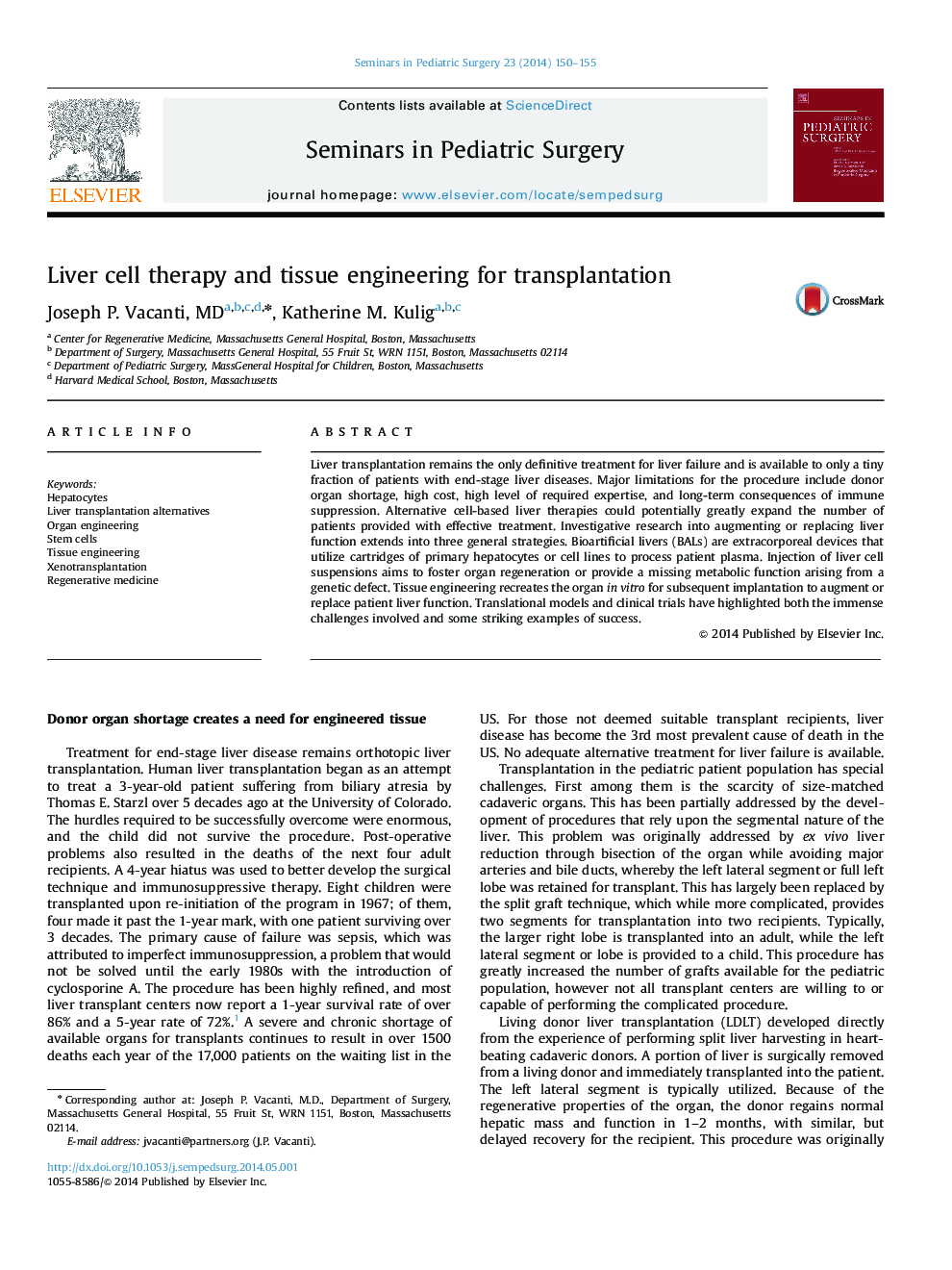| Article ID | Journal | Published Year | Pages | File Type |
|---|---|---|---|---|
| 4176591 | Seminars in Pediatric Surgery | 2014 | 6 Pages |
Liver transplantation remains the only definitive treatment for liver failure and is available to only a tiny fraction of patients with end-stage liver diseases. Major limitations for the procedure include donor organ shortage, high cost, high level of required expertise, and long-term consequences of immune suppression. Alternative cell-based liver therapies could potentially greatly expand the number of patients provided with effective treatment. Investigative research into augmenting or replacing liver function extends into three general strategies. Bioartificial livers (BALs) are extracorporeal devices that utilize cartridges of primary hepatocytes or cell lines to process patient plasma. Injection of liver cell suspensions aims to foster organ regeneration or provide a missing metabolic function arising from a genetic defect. Tissue engineering recreates the organ in vitro for subsequent implantation to augment or replace patient liver function. Translational models and clinical trials have highlighted both the immense challenges involved and some striking examples of success.
